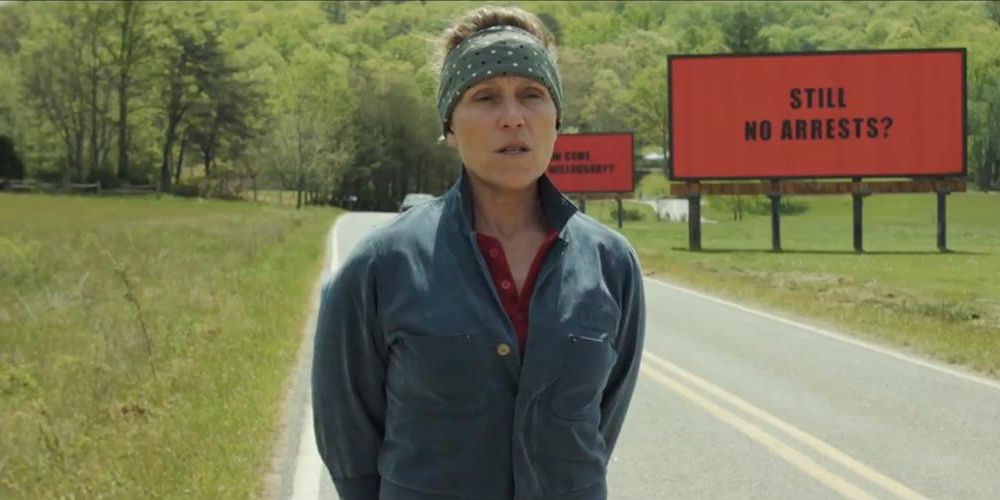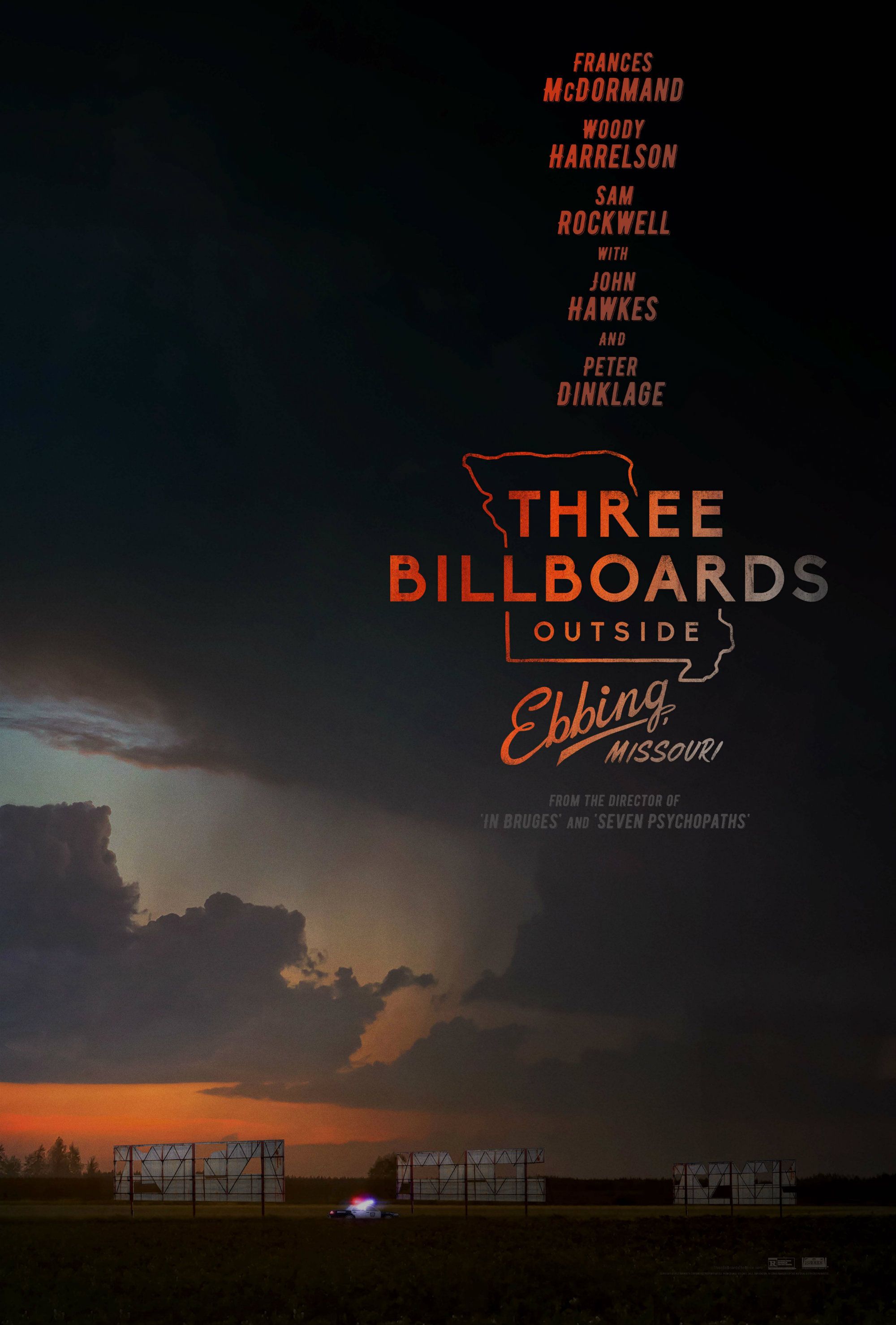Warning: SPOILERS ahead for Three Billboards Outside Ebbing, Missouri
–
One of this year’s biggest awards contenders is a small, quiet film about a mother (Frances McDormand) seeking justice following the rape and murder of her daughter. Three Billboards Outside Ebbing, Missouri, from writer/director Martin McDonagh (In Bruges and Seven Psychopaths) drew widespread praise at the Venice, Toronto and Philadelphia Film Festivals this fall, ahead of its limited release on November 10th, and wider release on November 17th.
Three Billboards – currently at 95% fresh on the Tomatometer – has garnered widespread praise for several reasons. The movie’s strong performances go uncommonly deep, with McDormand, Sam Rockwell, Woody Harrelson, Lucas Hedges, and John Hawkes all delivering some of their best-ever on-screen turns.
Related: Three Billboards Trailer #2: Frances McDormand Wants Justice
The film deals with many sensitive topics – crime, sexual assault, cancer, suicide, racism, police brutality – without really getting preachy or even necessarily political about them. For a film about such heavy subjects, it’s surprisingly, and even poignantly funny, while handling all of its tonal shifts impeccably. It has plentiful empathy for its characters, and sympathy among them is likely to shift, in the audience’s eyes, throughout the film.
In Three Billboards, set in a small town in rural Missouri, Mildred Hayes (McDormand) is the mother of a daughter, Angela, who has been raped and murdered. After seven months pass with no progress on the police investigation, Mildred rents the titular three billboards outside town and uses them to very publicly ask why Sheriff Willoughby (Woody Harrelson) hasn’t managed to make any arrests in the murder of her daughter.

Because Willoughby is a popular local figure (and a man who is known to be dying of cancer) the billboards turn much of the town against Mildred – most notably the drunk, racist, violent police officer Jason Dixon (Sam Rockwell.) We later learn that, dysfunction in the police department notwithstanding, Willoughby most likely did all he possibly could to try to solve the crime, and he emerges as something of a poignant and tragic figure. Near the film’s end, Dixon, despite having been fired from the police department, appears to redeem himself by solving the murder while getting himself bloodied in the process. But it turns out he was wrong, and the film ends without any resolution as to who killed Angela Hayes.
As more and more people see Three Billboards there are likely to be fan theories about the film, its ending, and the lingering question of who actually killed Mildred’s daughter. People are going to make assumptions that certain characters in the film – Lucas Hedges’ depressed brother? Peter Dinklage’s flirtatious barfly? The drinking buddy of Dixon’s suspect? – was in fact the murderer.
But to try and “solve” Three Billboards is to completely misunderstand what this movie is, or what it’s ultimately about. For one thing, the film doesn’t introduce one iota of evidence that any of these characters is guilty of the murder. If the film intended for the audience to draw that conclusion, the film would put clues in to that effect, and it does not. Beyond that, that’s just not the point of Three Billboards. It’s not a murder mystery, or a whodunit. There are many things important to its plot and what it is as a film, and the identity of the murderer is not one of them. In fact, the very not-solving of the murder is perhaps the key to its ending.
More: 10 Movies We’re Looking Forward To: November 2017
Key Release Dates

Three Billboards Outside Ebbing Missouri
Release Date:2017-11-10




